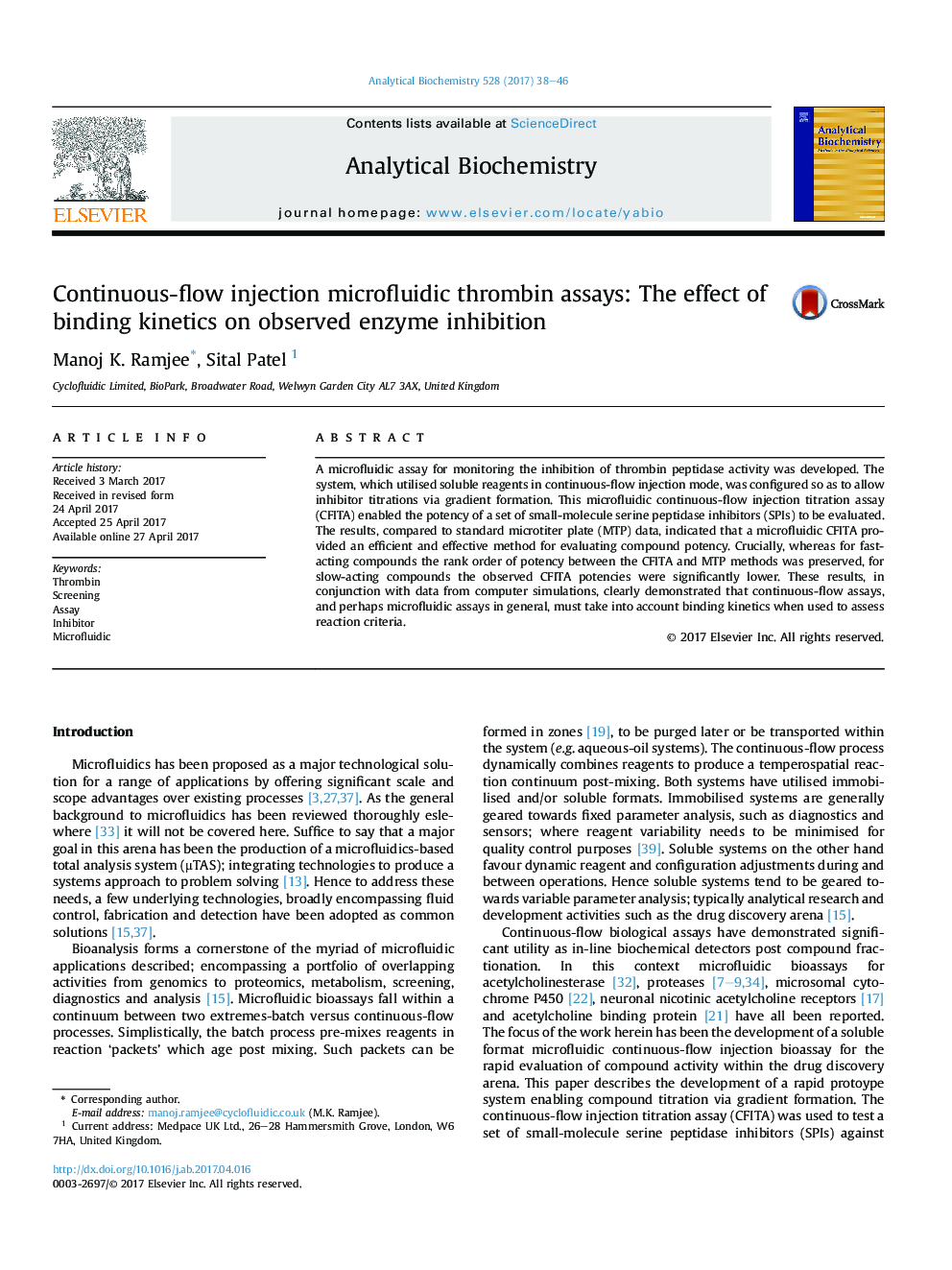| Article ID | Journal | Published Year | Pages | File Type |
|---|---|---|---|---|
| 5131671 | Analytical Biochemistry | 2017 | 9 Pages |
A microfluidic assay for monitoring the inhibition of thrombin peptidase activity was developed. The system, which utilised soluble reagents in continuous-flow injection mode, was configured so as to allow inhibitor titrations via gradient formation. This microfluidic continuous-flow injection titration assay (CFITA) enabled the potency of a set of small-molecule serine peptidase inhibitors (SPIs) to be evaluated. The results, compared to standard microtiter plate (MTP) data, indicated that a microfluidic CFITA provided an efficient and effective method for evaluating compound potency. Crucially, whereas for fast-acting compounds the rank order of potency between the CFITA and MTP methods was preserved, for slow-acting compounds the observed CFITA potencies were significantly lower. These results, in conjunction with data from computer simulations, clearly demonstrated that continuous-flow assays, and perhaps microfluidic assays in general, must take into account binding kinetics when used to assess reaction criteria.
